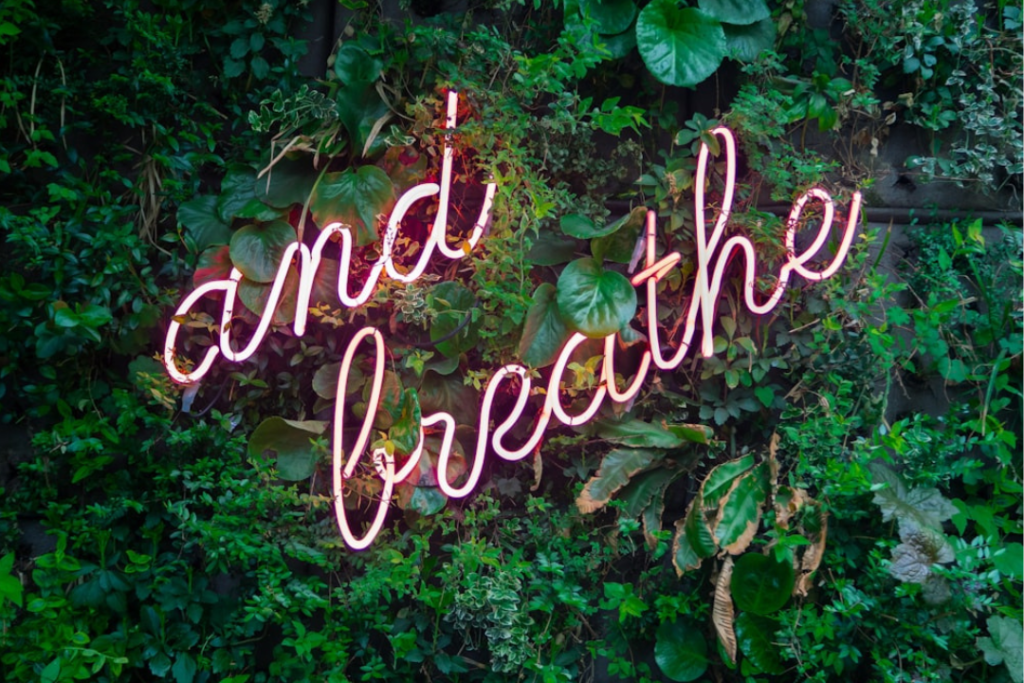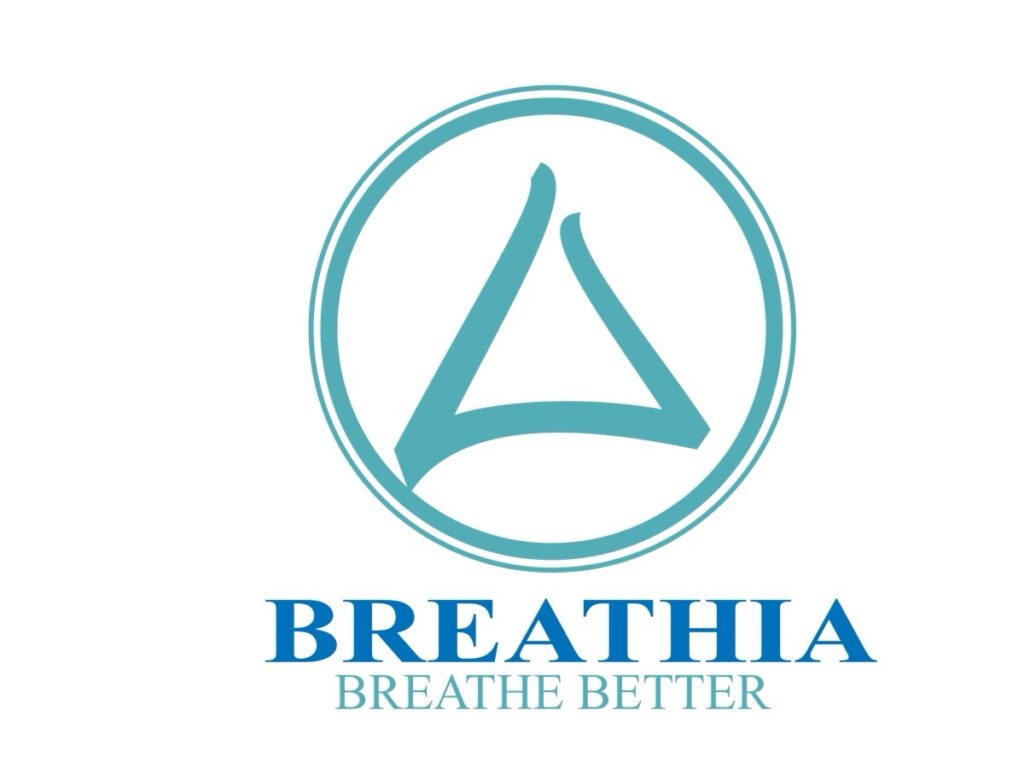
Have you ever felt that unnerving shortness of breath?
While you think, “I’m still breathing, I’m good,” there’s much more to consider.
Dive a little deeper. It’s more than just being alive!
It’s about Breathing Better to Live Better.
Our breath – it’s not just a life function. It’s our mood regulator, our body’s silent communicator. Your breath is directly connected to your Autonomic Nervous System (ANS). Sure, we have plenty of oxygen in the body (normal average 94-98%), but how efficiently are we using it?
Inefficient oxygen (O₂) to carbon dioxide (CO₂) balance may be limiting your physical and mental performance. When we breathe less and more slowly, we move toward more optimal balance of these two life-sustaining gases.
Breathing is purely efficient and results are predictable.
Breathing practice isn’t just a recent trend.
Science has spoken and Institutions like Harvard, Stanford, scientific publictions, like PubMed and many others are all discussing it. You can Google it, but all this information is often presented in a trivial and boring way, as one of my students pointed out to me. I’ll do my best to be more entertaining and practical. 😉
However, Yoga’s Pranayama practices have been indicating benefits of conscious breathing for centuries!
- Energy slump? Fixed.
- Racing heart? Calmed.
- Having a bad day? Reset with a breath.
You may ask: Why focus on breathing and not on meditation?
Because breathing practices deliver predictable results and directly communicate with both sympathetic – “fight or flight” and parasympathetic – “rest and digest” branches of our Autonomic Nervous System(ANS).
I love meditating and while meditation has its huge merits, for some of us, it may start with a touch of anxiety. Meditation is great, but it might not be for everyone, as it can initially intensify anxieties and make your mind feel even more busy and confused. During the first two weeks of my regular meditation practice, I experienced heightened anxiety, painful memories. It took me six months to truly start feeling full benefits of 20 minutes meditating daily.
Breathing, on the other hand, helps balance your nervous system, manage your energy, heart rate, and emotional response, almost instantly.
Not to forget, a Vagus nerve stimulation during breating, 10th of 12 cranial nerves and the longest in your body, becomes your best ally during consious, focused breathing, delivering more calm while staying focused.
Vagus nerve, which connects to the parasympathetic branch of our ANS, supports this innate potency of proper focused breathing.
Getting Your Breathing “Right”
Let me break down 3 essential breathing techniques for you.
- Always inhale through your nose and exhale through the nose or mouth.
- If your nose is blocked, there are some mouth inhalation tricks – more details in the next article.
- Be always aware of diaphragmatic breathing—commonly referred to as “belly breathing”, although it’s not truly breathing with the belly, despite what many people call it. In essence, it is diaphragmatic breathing.
- Breath of Fire or “Coffe breath” as I call it: Ideal for mornings. For example, you can do it pre or post-coffee, always before meals, on empty stomack, to gently activate your sympathetic NS, preparing you for the day, gently boosting your morning cortisol levels naturally. It’s a good choice before sports acitivity, yoga practice, or to simply let your negative emotions out.
- Balanced Breathing or “Water Breath”: Perfect anytime during a day. It aligns with the parasympathetic system, helping you find balance when life gets busy. And life is busy most of the time. For example: I practice it in the car, when stuck in a traffic, while looking for a parking spot, after a meal, after yoga practice and simply when I feel I need it, just like a sip of water.
- Relaxing Breathing: Turn to this when feeling anxious, before sleep, during sports and yoga asanas practice to build more resilience but feeling present in the moment. It’s all about calming and grounding yourself. Inhales are always longer in relaxed breathing, paired with vagus stimulaiton, by gently constricting back of your throat.Photo by Chelsea Gates on UnsplashHow to Build a Habit of Conscious Breathing?Breathing is your life’s rhythm, and breathing rate matters.
- On average, we take 12-20 breaths per minute or more. This is not energy efficient nor it brings more oxygen in.
- For a relaxed state? Aim for 6 – 8 breaths per minute.
- For energetic, “coffee breathing” 20- 60 breaths per minute.
- But it’s not about counting, this is just to give you na idea of a breathing pace for what you want to achieve with your breath.
- As you practice daily, you and your body will learn to feel and tune into different breathing patterns and rhythms. It will become a natural part of your existence, your breath flow
- This daily breathing “habit” has a compound effect and it will build your better stress resilience, you will enhance deeper sleep and it can even potentially support weight loss.
- Practicing specific techniques at least three times a day.
- You can start with 6 minutes daily, and it will pave the way to your breathing transformation.
- But remember, always approach breathing practices responsibly and in moderation! If you’ve had recent surgery or manage a chronic condition, consult your doctor first. I had to say that:)
- Drinking your morning coffee? Pair it with the Breath of Fire. Feel that sympathetic kick in, preparing you for the day, your workout or leeting your hidden frustrations out of your system.
- Had a piece of cake or wrapping up your lunch? Try Balanced or Water Breath. It’s about harmony, aligning with the parasympathetic system, digestion support and managing your balance through daily chaos.
- Evening Netflix binge or feeling tired but wired? I always reach out for Relaxing Breath. It’s about grounding and tranquillity. Slow, deeper, nose inhale and exhale. Exhale is always slower and longer.
- While working, driving, or even amidst unpleasant conversations, we can tune into our breath willingly.So, what is your breath telling you right now? This ‘you and your breath connection’ offer insights into your present nervous system state and with every “calibrated” breath you can learn not to be slave to this environment or to your fears, or ambitions.
Final Thought: You Can’t Say You really Know it If You Do Not Do It!
Are you eager to dive deeper? I will talk about “Coffee Breath” in detail in my next article.
Your Breath is Your Safe Space. And, please, let’s keep it mindful. It gets only better with every day.
Because, when I take moments throughout the day to genuinely “listen” to my breath, I always find my anchor and ally, as it guides me back to this present moment, and reminds me of this quiet strength within.
If you’re still here reading, I appreciate it.
Breathing transcends mere air intake – it’s a deep connection with oneself.
Keep practicing, because every breath counts!
I am curious about your breath journey: please share your experiences or questions in comments below.
To Your Breath Flow!
